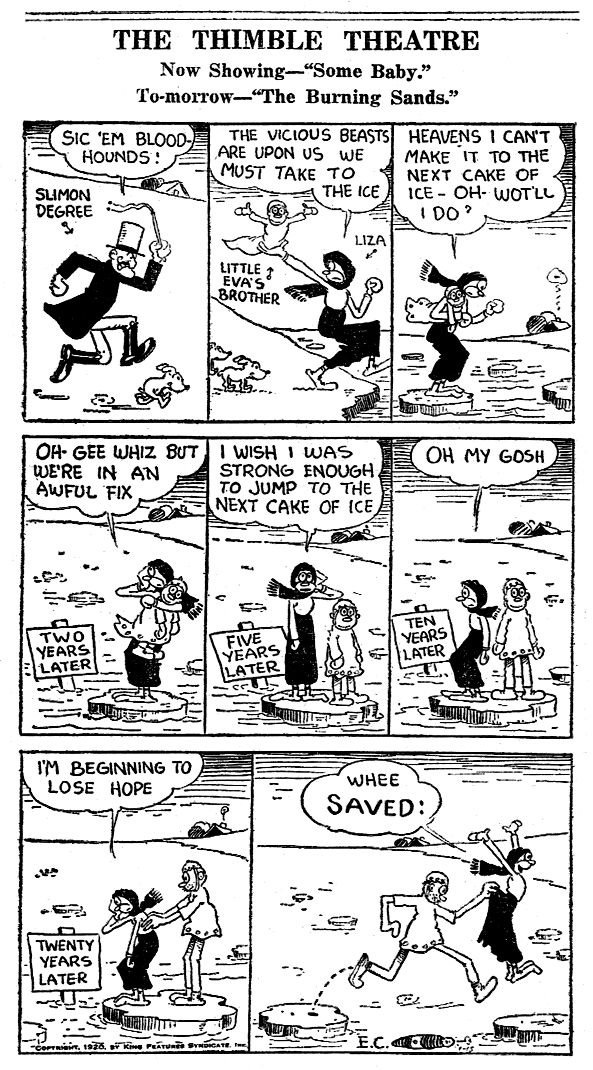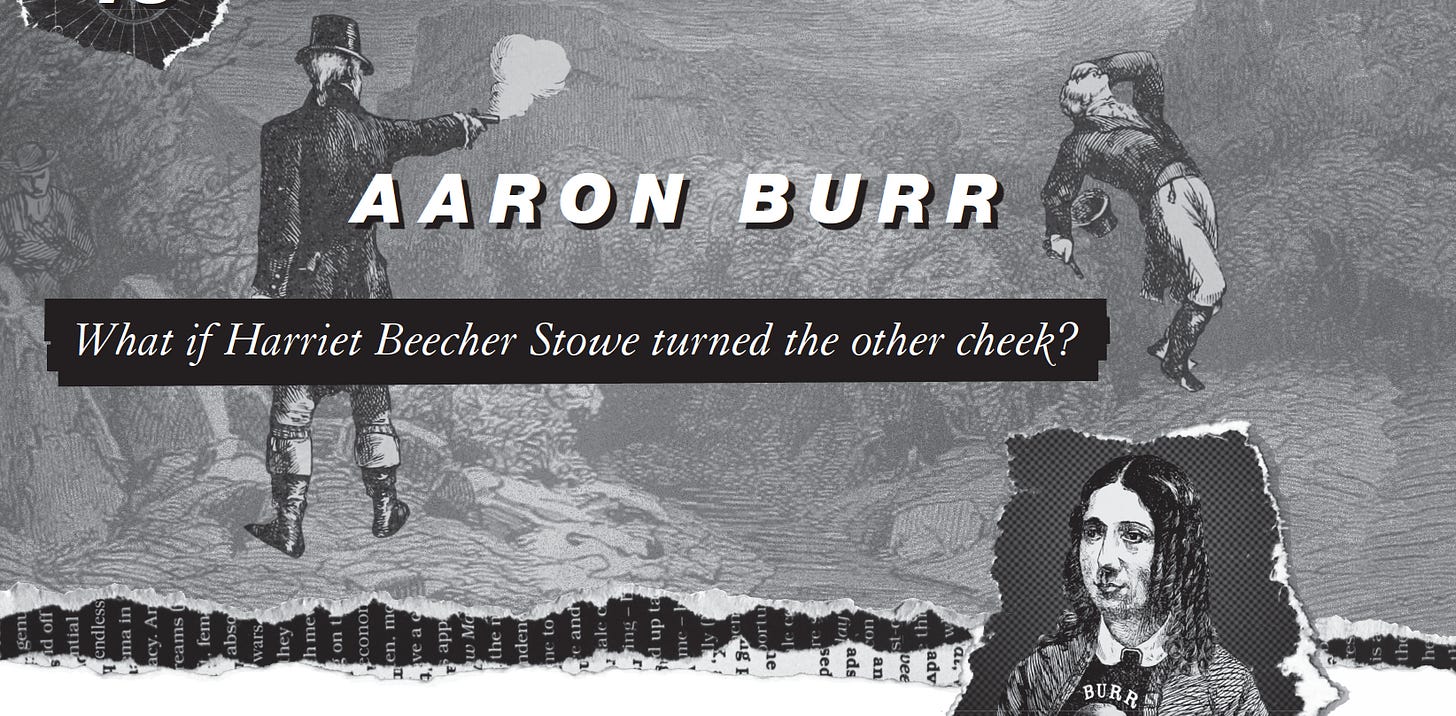These are annotations for the eighteenth chapter of the book Impossible Histories, which you can acquire just about anywhere, including here or your local library. No pressure on that acquisition, but these notes might make more sense with the book in hand.
p. 342
•epigraph: The epigraph here was to be:
Oh, Aaron Burr, what hast thou done?
Thou hast shooted dead great Hamilton.
You got behind a bunch of thistle
And shot him dead with a big hoss-pistol.
§anon., trad.
I didn’t always cite my epigraphs thoroughly, but this one is from Remini, op. cit., p. 41, and I tell you this because everyone has a different version. Joseph J. Ellis (e.g.) has “O Burr, O Burr, what hast thous done etc.” What can you do? It’s anon. and trad.
[Ellis, Founding Brothers (Vintage, 2002) p. 27.]
•1828 campaign song: You can hear Oscar Brand sing it below:
•the devil, as is his wont, obeyed the letter: This is the bonest mot in the whole book.
p. 343
•“the little lady who made this big war”: Variants abound for this quote as well. I’m not even keeping track any more. Take your pick.
•Agnes Repplier: Repplier is all but forgotten now, but she was justly famous in her day, and a bald summary (such as the one I provided) does not do justice to her reasoning or her irony.
p. 344
•“Uncle Tom’s Crabbin”: This cartoon features a motif familiar in animated shorts: One character just wants to get some sleep, but can’t because troublemakers keep making noise all night. In this case, the character who just wants some sleep is Simon Legree! which as you can imagine creates a strangely dissonant text.
•Olive Oyl: This was a full nine years before Popeye appeared in the strip, of course. At the time Olive was somewhat ambiguously (are they only playing a part at this point?) dating Ham Gravy.
The strip itself (below) will raise more questions than it answers. Olive, you will notice, is in blackface, but “little Eva’s brother” would (in the context of the novel, if he existed) be white. A solid gag, though.

•Minister’s Wooing: I have no where else to mention the fact that our friend Alcibiades gets name-dropped in the book, here:
When brought face to face with the great truths of the invisible world, they stand related to the higher wisdom much like the gorgeous, gay Alcibiades to the divine Socrates…they gaze, imperfectly comprehending, and at the call of ambition or riches turn away sorrowing.
•altogether better-written book: The Calvinist idea that people should birth children who almost certainly, statistically at least, will end up damned is particularly well presented:
She wondered that the sun could shine so brightly, that flowers could flaunt such dazzling colours, that sweet airs could breathe, and little children play, and youth love and hope, and a thousand intoxicating influences combine to cheat the victims from the thought that their next step might be into an abyss of horrors without end.
or
The mother clasped her babe to her bosom, and looked with shuddering to the awful coming trial of free agency, with its terrible responsibilities and risks, and, as she thought of the infinite chances against her beloved, almost wished it might die in infancy.
p. 345
•assassinate Burr’s character: ♫ “Don't let them know what you’re against or what you’re for etc. etc.” ♫
p. 346
•Henry Ward Beecher: The great man may be largely forgotten today, but Beecher has a kind of immortality, as his portrait features in the Sherlock Holmes story “The Adventure of the Cardboard Box.”
•other limericks, less suitable for polite company: Should I quote one??…nah, you can follow the citations in the endnotes, right? Keep this stack family friendly.
•tried for heresy: As mentioned in the notes to chapter seventeen, W. Robertson Smith was tried for Presbyterian heresy—tried in 1876, cleared 1880. When did that stop happening?
p. 348
•Your favorite CD is ruined: One editor told me to cut this chapter because (he claimed, if not in these exact words) Hamilton fans were rabid humorless sociopaths who would never be able to handle imagining a timeline in which they could not watch their darling. Obv. I ignored his advice, but I guess I’m saying: If you’re a rabid humorless sociopathic Hamilton fan, have pity on me!
• The epigraph here:
Aaron Burr, that old apostate,
Thought our country had bad joss,
Sought to form his own good-joss state,
But, alas, it was a loss.
§anon., trad.
[Quoted in Van der Geer op. cit. p. 3108.]



